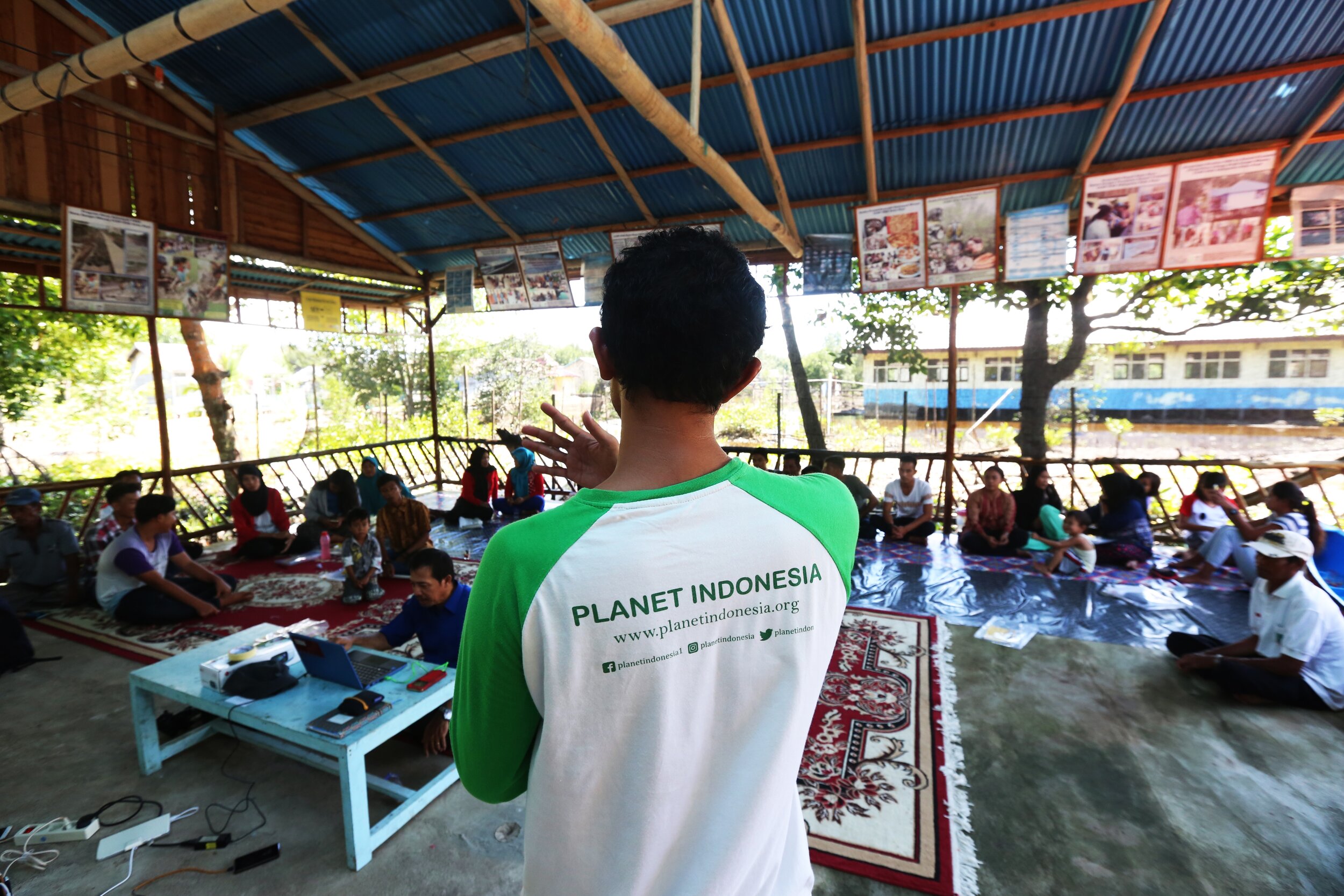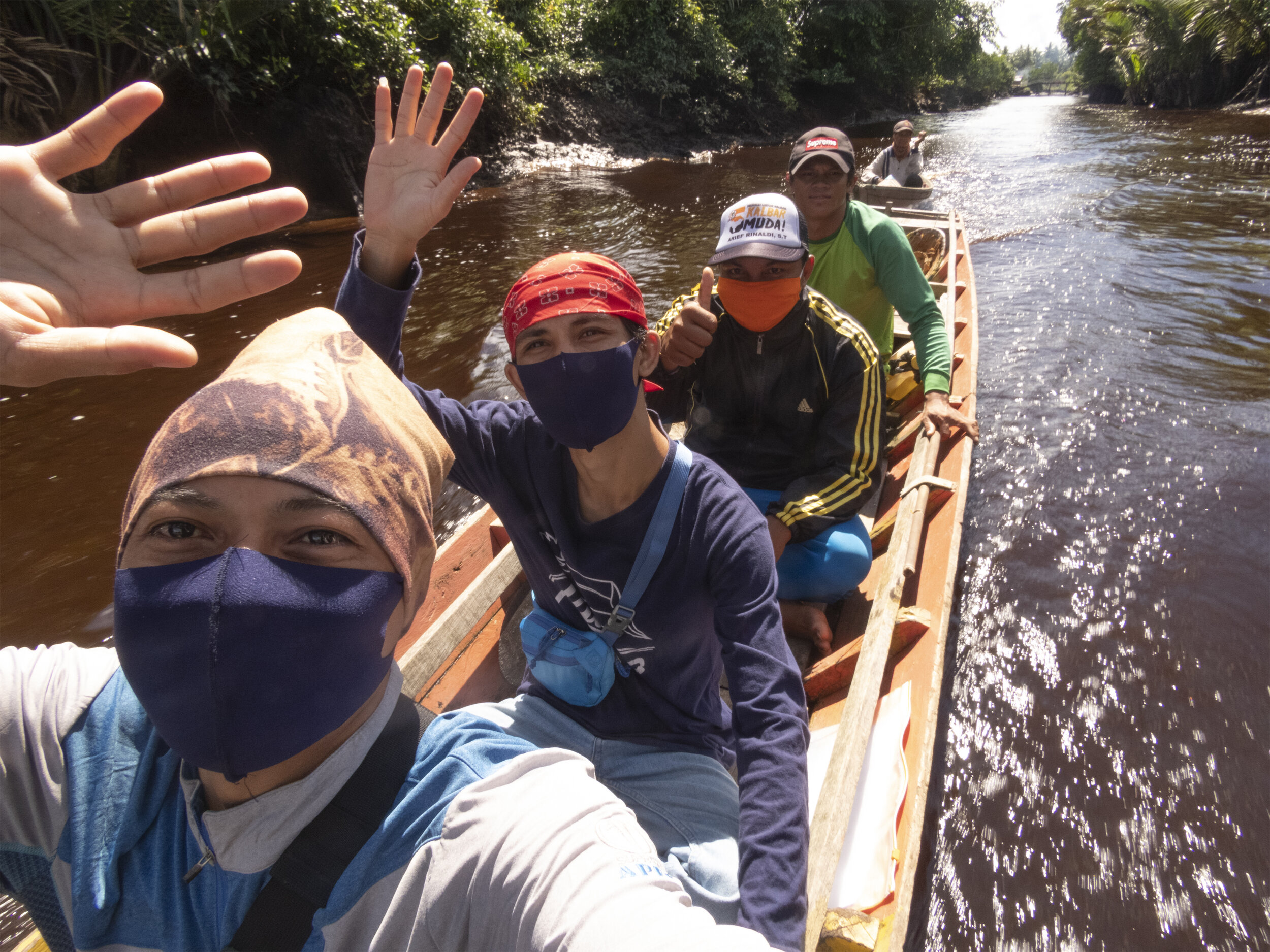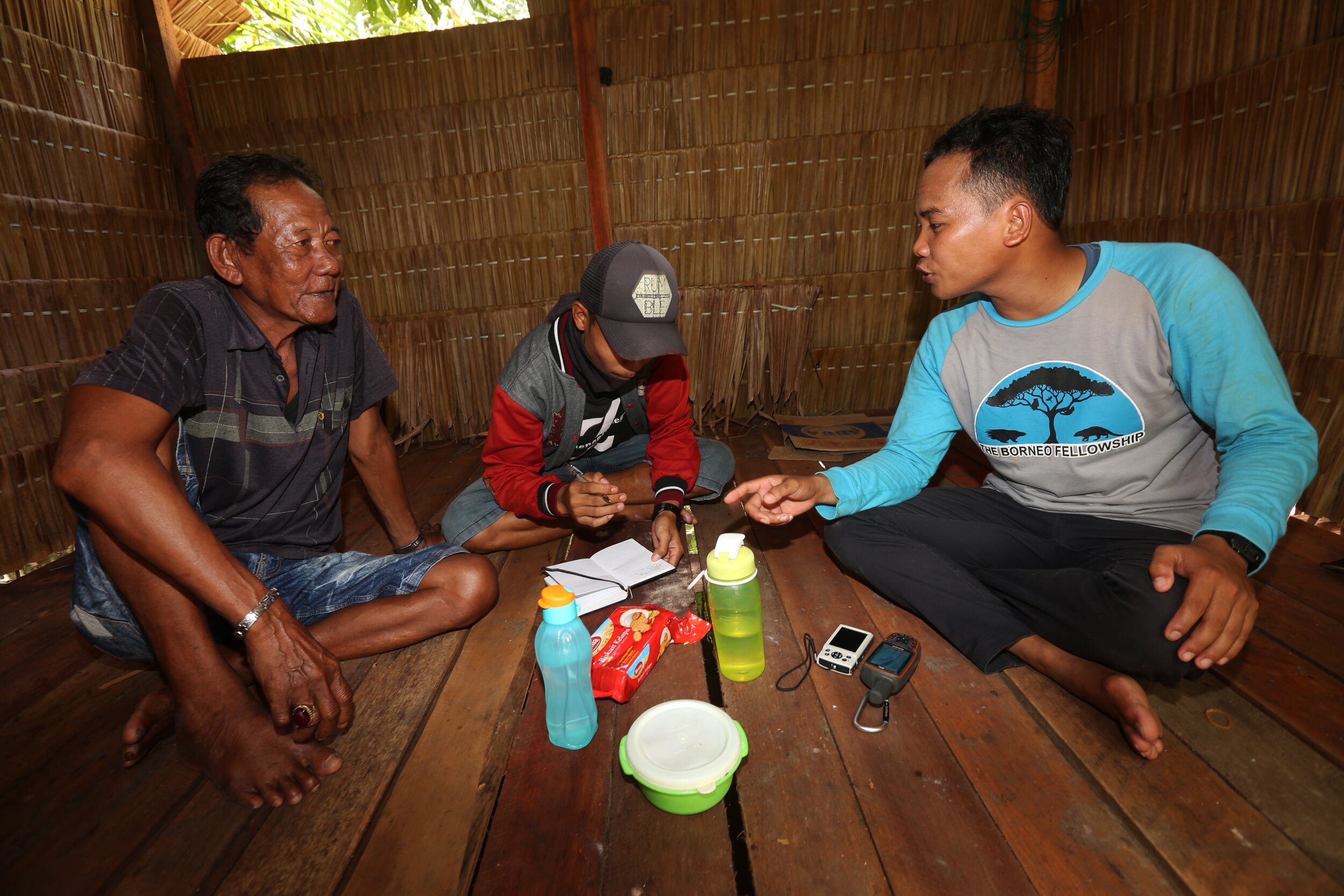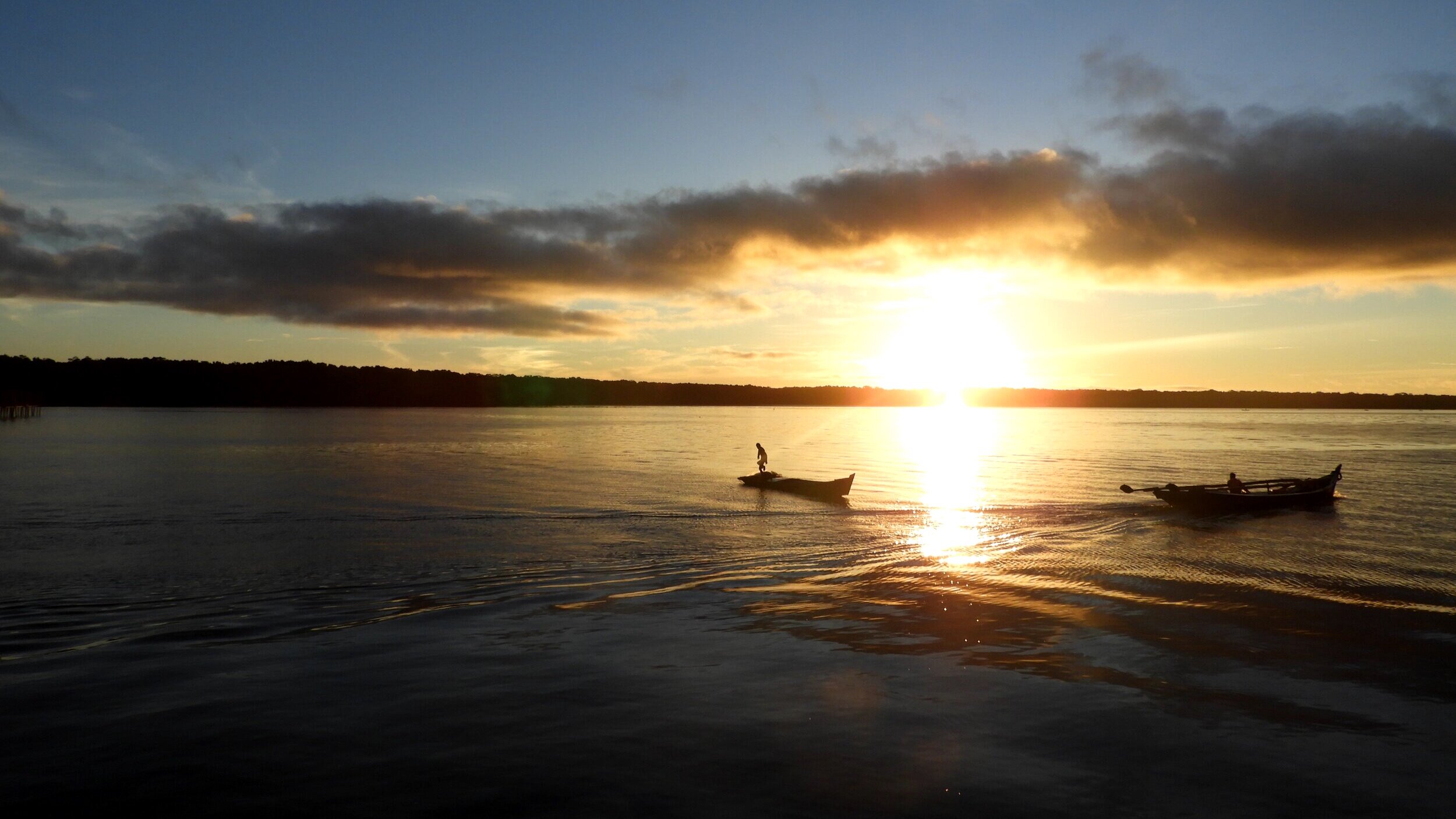Trust in Conservation: Why It Matters
By Adam Miller
Over the past several years Planet Indonesia has become increasingly recognized as a leader in the space of community-centered conservation. Because of this, we are often asked for recommendations, potential pitfalls, and lessons learned that could enable other conservation initiatives to be more impactful. While we are still learning the answers to some of these questions, one theme has remained true since the very beginning.
“Relationships build trust, and trust creates impact. ”
When I share this finding, it is usually followed by a long pause of silence or a look of confusion. It is not often what one hears or reads in the space of trying to repair the human-nature relationship. Most are looking to hear that silver bullet answer – the one intervention that tipped the scale and fixed the wicked problem their organization is addressing.
Increasingly, recommendations for the community-centered conservation space focus on various social, economic, or political levers that can be pulled to produce a suite of cross-sectoral outcomes. These types of mechanisms are partially responsible for the creation of payment for ecosystem services (PES) space. These schemes often use black-and-white approaches where communities are compensated for XX amount of potential loss by adopting conservation behaviors X,Y, Z. This can also be found in conservation agreement models. While arguably more successful than PES schemes, they still rely on a switchboard of benefits, compensations, or agreements to incentivize or deter a behavior that may impact the environment. While there is efficacy in these approaches, if we have learned one thing from the past 6 years of working alongside Indigenous and rural communities in Indonesia, it is this. Relationships build trust and trust creates impact. Based on our learnings, I have laid out a few tips and recommendations for organizations, facilitators, funders, or other actors looking to improve their reach, impact, and partnerships in community-based conservation.
Relationships matter, just as much as your theory of change. In 2014, when we started Planet Indonesia and began scoping various project sites, we noticed a constant theme among the villages we were visiting. Distrust. Distrust riddled the social system from years of false promises from government, NGOs, private-sector, and other external actors. Communities felt sidelined in the process, rarely given the chance to voice their needs and aspirations to these external stakeholders. Sadly, this is the norm across the global south where many conservation-development projects take place. This mindset places zero importance on relationships, and we argue, is what causes so many community-centered conservation programs to fail.
We have learned that relationships matter. Just as you would grow a relationship with a friend or colleague, organizations looking to be more impactful must respect, listen, and show up when times are tough. Creating these healthy relationships enables trust - that trust is what facilitates behavior change. The ability to resolve conflict and have difficult conversations about human behavior or policies hinges upon that established trust.Your theory of change is still important. While we have learned relationships are central, to facilitate this process, it is imperative to have clear objectives, strategies, and an overall vision. Clarity further supports a healthy horizontal relationship in which people-centered conservation thrives. In fact, clarity helps set expectations and reduce the chance of disappointment from community partners. Yes, having a strong theory of change makes for a sexy grant proposal and is essential in accessing new funds. However, perhaps more importantly, it is a way to create clear expectations for the communities you are working alongside. What does this do? It builds trust.
Relationship – Trust – Impact. In the first year of Planet Indonesia’s journey, I distinctly remember the first group of poachers who had decided to shift their behavior. Biodiversity and patrol surveys in the same forest landscape revealed nearly a 95% reductions in poaching instances (e.g. snare encounters, gun shots, dead wildlife, or poachers themselves), further shedding light on a relatively quick shift in human behavior and a positive environmental impact. Digging deeper into what caused this shift in behavior, I found an array of surprising stories.
I was surprised to find that the majority of stories were about relationships. Planet Indonesia staff had developed friendships with these individuals, trust had been built, and when it came time to have that difficult conversation that hunting was not allowed in no-take zones of the protected area, the poachers' ears were open. Yes, they did end up enrolling and utilizing various program services found in our Conservation Cooperative model to help overcome hardships and ease the transition away from poaching. But they first and foremost made the shift because of established horizontal trust underpinned by a positive relationship. This story of ‘relationship-trust-impact’ I have witnessed time and time again, from montane Indigenous communities to rural coastal communities. It is the foundation to all of Planet Indonesia’s success.
Showing up matters. When you apply to work at Planet Indonesia, on day one, you are informed that you will be expected to spend 7-15 days a month in the field working alongside rural communities. This amounts to about 25-35% of your entire year. It is not easy, and it’s a big ask. But showing up matters. We invest a lot in having a constant presence in the villages that have partnered with us. This creates opportunities for conversations, allows us to pivot and be adaptable based on emerging needs, and ultimately opens up the door for the relationship-trust-impact pathway to occur.
Be quiet, and listen. It really is that simple. If you want to have more impact, accept that you are not the implementer of a strategy, program, initiative, or whatever other buzzword is currently trending in the NGO space. Rather, you are facilitating a process. At best, accept that you are there to listen and facilitate a simple progression: design, do, measure, improve. Accept that the progression is in the hands of the communities that have decided to partner with you. Move away from a system where you are “advocating on behalf of” a community and embrace a horizontal, not vertical, relationship. Yet again we have learned this is central to facilitating the relationship-trust-impact chain of reactions.
Be willing to adapt and deliver, but avoid mission drift. If the above tips are observed, your staff should be coming forward with new needs, challenges, and opportunities brought forth by communities. To further open up the door for more impact by creating trust, you should keep open ears and remain adaptable. Integrate new challenges and opportunities into grant proposals and don’t remain stagnant. Become comfortable with the uncomfortable by creating a willingness to explore issues and opportunities that may be outside your area of expertise.
However, remain true to your mission and core values. Be responsive to community needs but do not overpromise. False promises are the quickest pathway to undo years of relationships building in people-centered conservation.Support emerging leaders. If all of the above is successful, or at a minimum practiced, doors will start opening, new individuals start coming forward, and the relationship-trust-impact pathway supports the empowerment of emerging leaders. This emergence is vital for long-term facilitation. These individuals become the change makers, trainers, and influencers. These individuals will often replace the role that your organization’s staff played when the relationship between the community and your organization was still new. This is truly the beauty of the relationship-trust-impact nexus, it can unlock potential, create sustained change, and create the enabling conditions for villages to be self-led, self-managed, and in a harmonious relationship with the land or seascape they are nested within.
This list is not exhaustive and is constantly evolving. Some of the recommendations here are probably not what you would have expected. It is unfortunate that relationship-based conservation isn’t the norm. We have learned it underpins the entire progression towards positive outcomes between the social-economic-environmental sectors.
There is a place for the “cross-sectoral” switch board of levers to stimulate progression. They do help ‘ease’ the shift and transition in behavior, and are essential to removing barriers that inhibit community engagement in natural resource management.
But we have learned that the success of any set of payments, deterrents, compensation, incentives, or other similar strategies in the mainstream is ultimately dependent on relationships & trust, and how these two interactions open doors for emerging leaders to champion the process.




